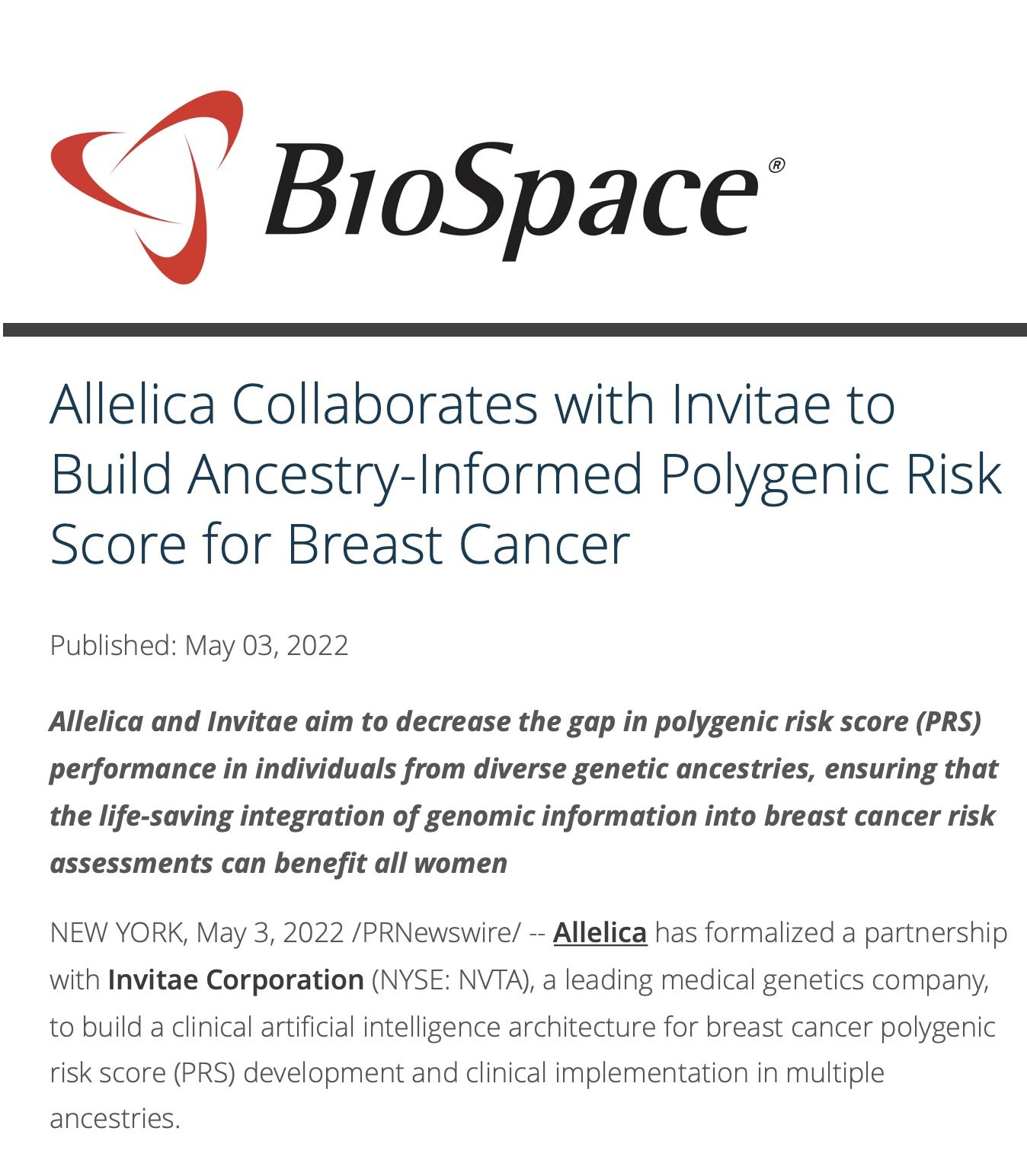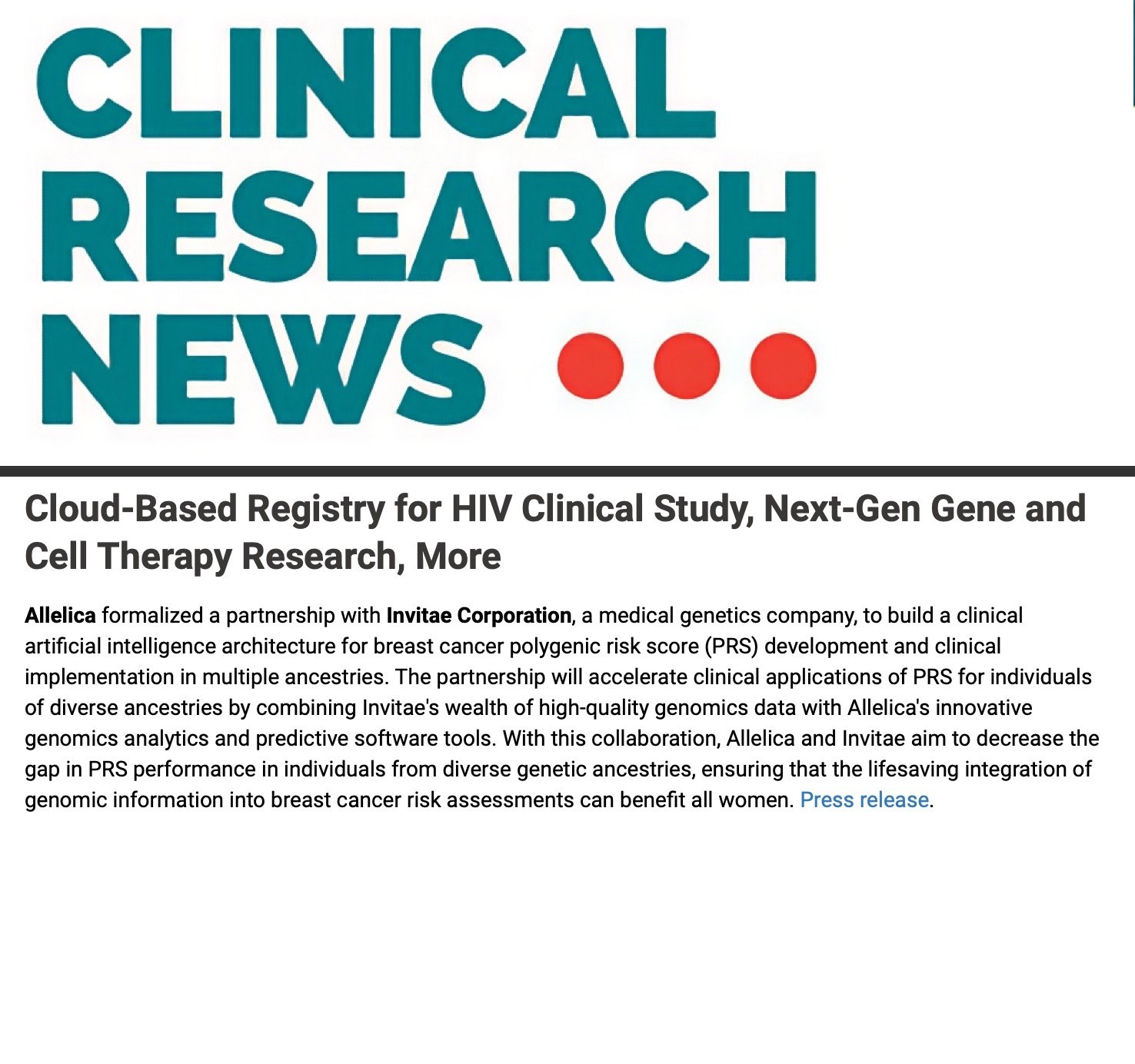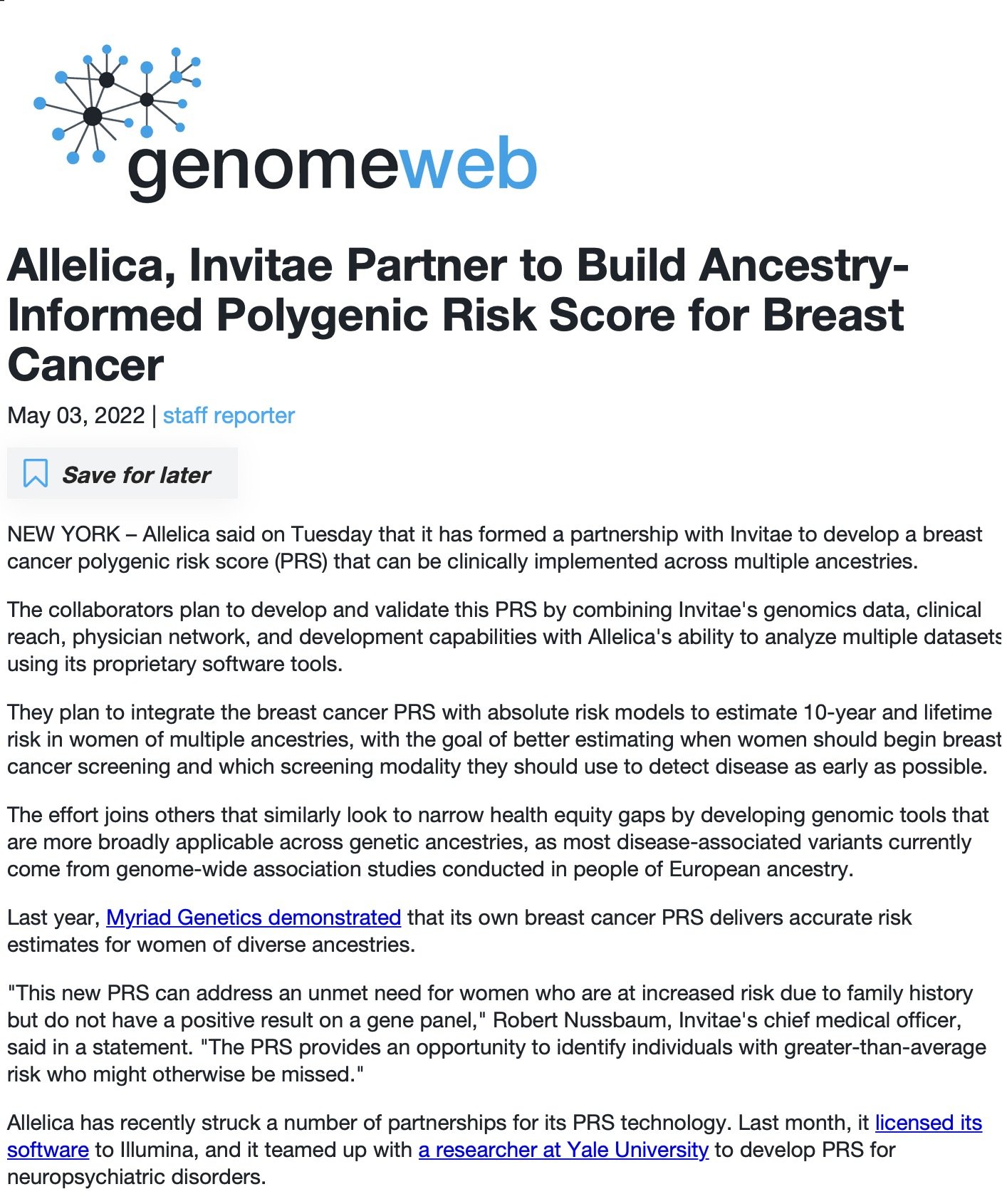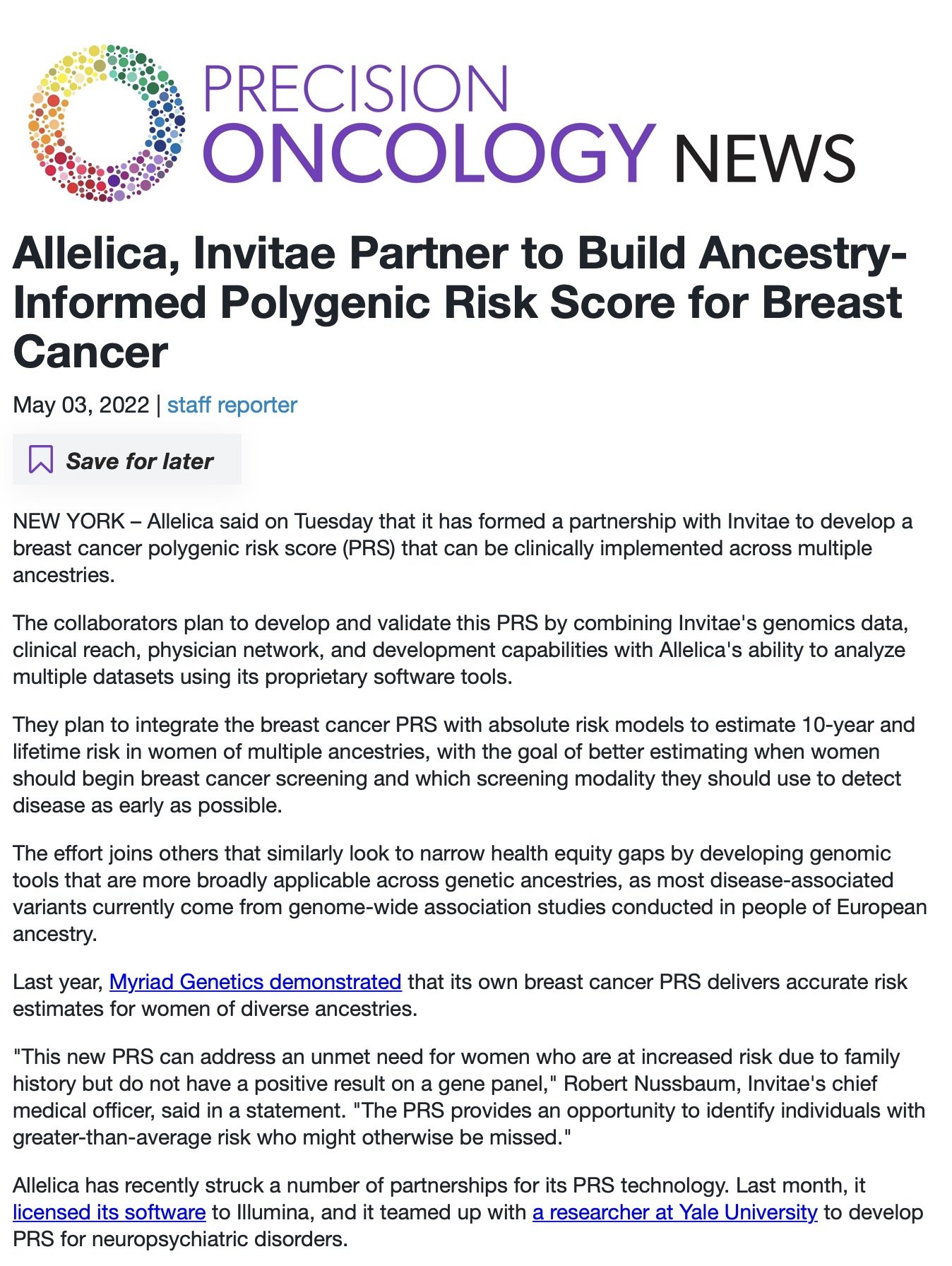Allelica and Invitae team to better identify women at risk for breast cancer
Allelica announced that it is working with Invitae to build and refine an ancestry-informed polygenic risk score (PRS) for breast cancer. Invitae is a leading medical genetics company whose mission is to bring comprehensive genetic information into mainstream medicine to improve healthcare.
The companies will combine Allelica's innovative approach for leveraging multiple datasets to improve the prediction of PRS across different genetic ancestries with Invitae's clinical reach, physician network, and development capabilities of innovative genomics products.
“Our partnership with Invitae is an incredible opportunity for us to join forces and leverage our complementary expertise to address one of the most pressing challenges in genomic medicine: closing the diversity gap in healthcare. We’re eager to work together to provide tools that will ultimately reduce the impact of breast cancer for women of all ancestries.”
A PRS for breast cancer can inform when women should begin breast cancer screening and which screening modality they should use in order to detect the disease as early as possible. Polygenic factors and pathogenic variants in moderate- and high-risk genes account for similar proportions of the familial relative risk of breast cancer. Allelica's collaboration with Invitae involves the development and validation of a new PRS for breast cancer and its integration with absolute risk models to estimate 10-year and lifetime risk in women of multiple ancestries.
Together, Allelica and Invitae aim to decrease the gap in PRS performance in individuals from diverse genetic ancestries, ensuring that the lifesaving integration of genomic information into breast cancer risk assessments can benefit all women.
“Fewer than 10% of women referred for hereditary cancer testing are found to have pathogenic variants in known breast cancer susceptibility genes. This new PRS can address an unmet need for women who are at increased risk due to family history but do not have a positive result on a gene panel. The PRS provides an opportunity to identify individuals with greater-than-average risk who might otherwise be missed.”
PR teams collaborate to drive valuable media coverage
Working in close collaboration with Invitae’s PR team, ZingPR was able to secure media coverage across a range of key publications.






